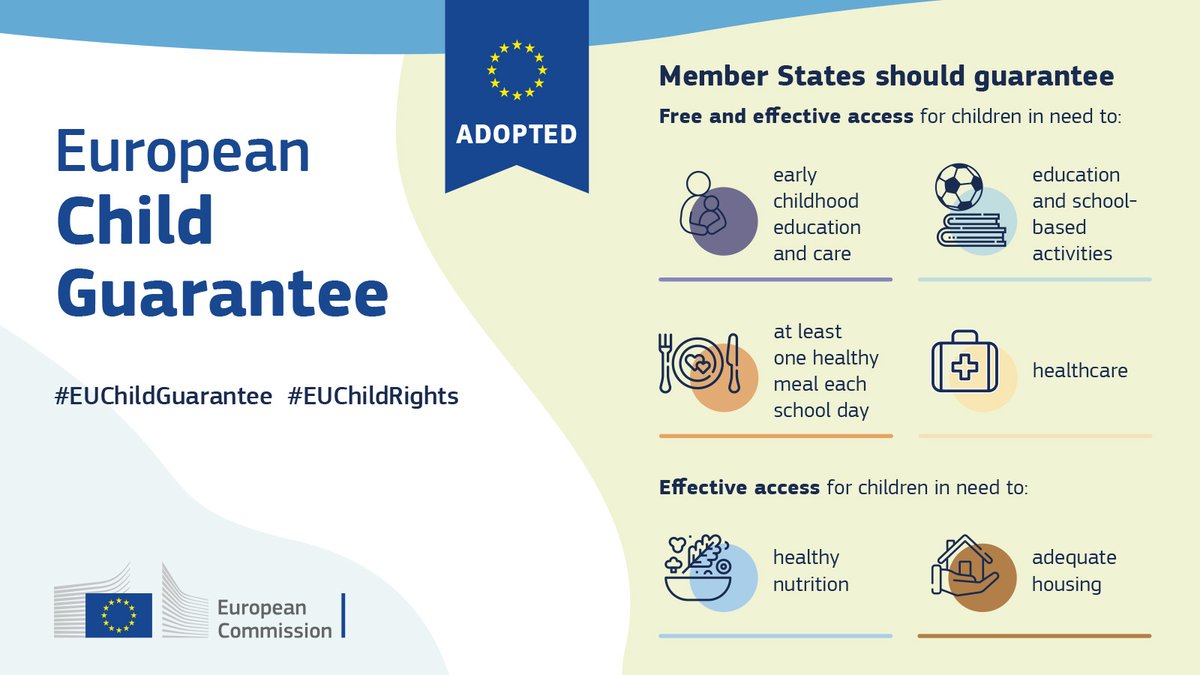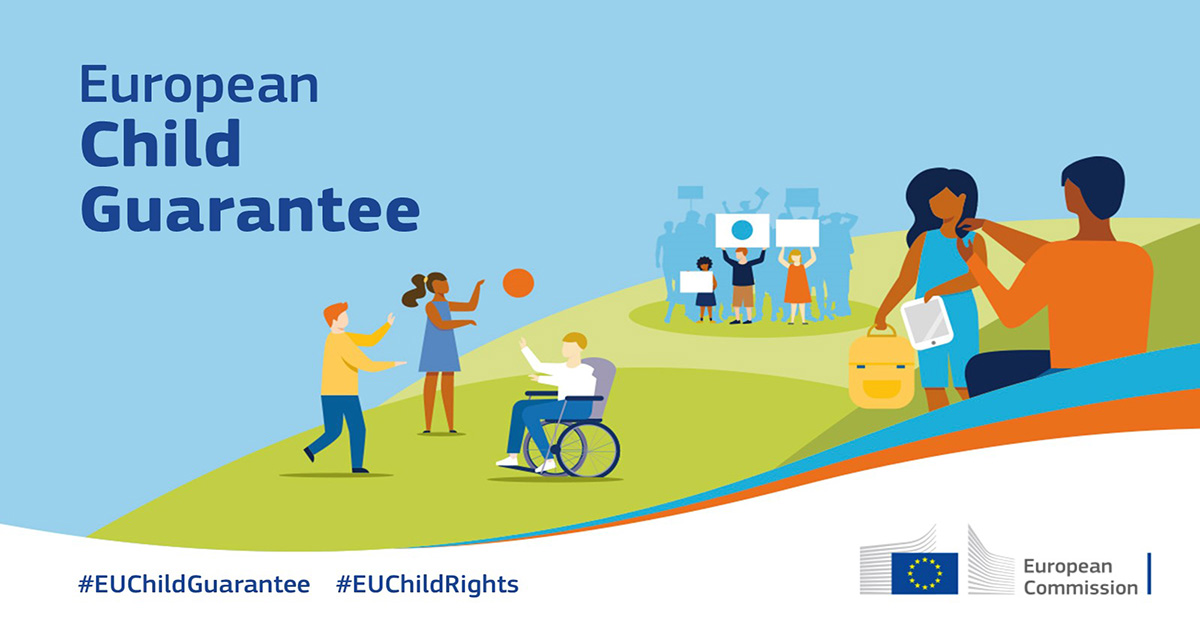Making the Child Guarantee a success - Children’s civil society to drive national action
Eurochild has launched a taskforce of leading child rights organisations in 9 EU countries to drive and support the implementation of the European Child Guarantee and tackle the rising levels of child poverty across the EU. 1 in 4 children in the EU face risk of poverty or social exclusion, with children facing a higher risk of poverty than working age population or people of older age. With EU countries developing their national action plans on the European Child Guarantee ahead of spring 2022, civil society now has a pivotal window of opportunity to influence measures and policies that will characterise the national fight against child poverty and social exclusion.
The Eurochild Child Guarantee Taskforce, with nine Eurochild member organisations, will be an important driver of change and will ensure that national governments and political leadership prioritise the European Child Guarantee. The Child Guarantee aims to guarantee the access of children in need to a set of key services including early childhood education and care, education, healthcare, nutrition and housing. The Taskforce will provide the organisations a space to share and examine innovative approaches, strategizing and exchanging relevant knowledge and good practices, to better influence the development of national action plans in their respective country. Each Taskforce team will also reach out to allies and explore ways in which they can work together. The work of the Taskforce will be tailored to the specific needs and context in which the organisations operate.
The Eurochild Child Guarantee Taskforce will work on country reports that should be published in January 2022. These country reports will support national advocacy on the National Action Plans and provide strong evidence-based arguments in strategic communications. They will also provide information to EU institutions such as data and case studies from the national-level perspective and help shape the European Commission’s common monitoring framework.
An active civil society equals success for children
The European Child Guarantee sets out that Member States must involve stakeholders in developing, implementing, and monitoring the Child Guarantee National Action Plans. EU countries are obligated to “ensure the participation of regional, local and other relevant authorities, children and relevant stakeholders representing civil society ….” [1]. Additionally, the unique perspective, societal position and on-the ground experience and knowledge of civil society will significantly benefit the development of the National Action Plans. Therefore, involving civil society organisations is not merely a technical obligation, but rather a must in the pursuit of making the National Action Plans as comprehensive and efficient as possible. Civil society is an indispensable partner for public authorities at all stages of the National Action Plans.
The leading organisations involved in the Eurochid Child Guarantee Taskforce are:
Bulgaria- The National Network for Child;
Germany- The German Children’s Fund;
Greece- The Smile of the Child;
Hungary– Family, Child, Youth Association;
Ireland- Children’s Rights Alliance;
Italy- Fondazione L'Albero della Vita ONLUS;
Portugal- Instituto de Apoio à Criança;
Romania- Hope and Homes for Children Romania;
Spain- Plataforma de Organizaciones de Infancia.
Background:
The Council Recommendation establishing a European Child Guarantee from June 2021 aims “to prevent and combat social exclusion by guaranteeing access of children in need to a set of key services, thereby also contributing to upholding the rights of the child by combating child poverty and fostering equal opportunities.”
Eurochild and its members have greatly influenced the shaping of the European Child Guarantee, since the first proposal by the European Parliament in 2015. Member States now must submit their national action plans in March 2022. These action plans should outline how they will implement this Recommendation up to 2030.
Read Eurochild’s reaction to the European Child Guarantee.
[1] Council Recommendation (EU) 2021 establishing a European Child Guarantee, p.30




